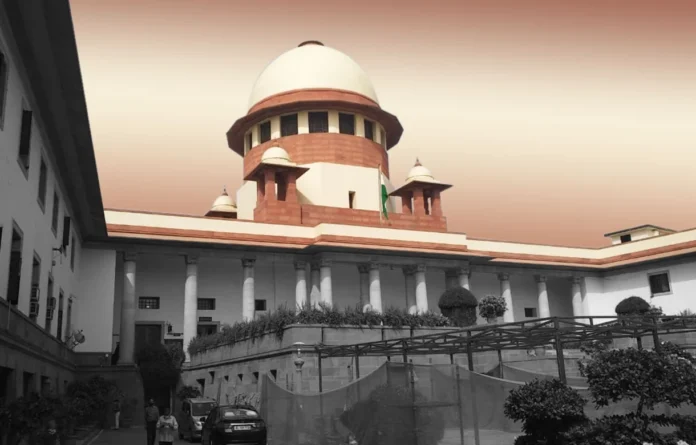Expressing concerns over state governments resorting to the demolition of houses of persons accused of crimes as a punitive action, the Supreme Court on Monday said it was thinking of laying down pan-India guidelines to address the issue.
While hearing a batch of petitions challenging the ‘bulldozer’ actions in various states, the Bench of Justice BR Gavai and Justice KV Viswanathan asked the parties to submit draft suggestions, which could be considered by the Court to frame pan-India guidelines.
The proposals were to be submitted to Senior Advocate Nachiketa Joshi, who was asked to collate them and present them to the Court.
The Bench came down heavily on the states for resorting to house demolition as a punishment. It said that even if a person was convicted in a case, his house could not be demolished.
A father may have a recalcitrant son, but if the house was demolished on this ground, this was not the way to go about it. Even if some construction was unauthorised, the demolition could be carried out as per the procedure in accordance with law, it added.
The Apex Court said while it would not protect any unauthorised construction, some guidelines were necessary to streamline the issue.
Appearing for the State of Uttar Pradesh, Solicitor General of India Tushar Mehta said the State had submitted an affidavit in the matter, which said that merely because a person was alleged to be part of an offence, could not be a ground for demolition.
No immovable property could be demolished because the owner or occupant was involved in an offence, he added.
Referring to the cases mentioned in the petition filed against the UP government, the SG said notices for violations were sent to the persons and since they did not respond, the unauthorised constructions were demolished following the process under the municipal laws.
Representing the Jamiat Ulema-i-Hind, Senior Advocate Dushyant Dave contended that several houses were demolished in Delhi’s Jahangirpuri immediately after the riots in April 2022 on the allegation that they belonged to persons who instigated the riots.
Senior Advocate Chander Uday Singh cited a case from Udaipur, where a person’s house was demolished because the tenant’s son was accused of a crime.
The Apex Court today also allowed an intervention application filed by the National Federation of Indian Women. Advocates Nizam Pasha and Rashmi Singh appeared for the Federation.
The Bench then listed the matter for further hearing after two weeks.
A batch of petitions were filed in the Supreme Court in 2022, relating to the demolition drive scheduled for April, 2022 in Delhi’s Jahangirpuri. The drive was ultimately stayed, but the petitioners prayed for a declaration that authorities could not resort to bulldozer actions as a form of punishment.
One of these petitions was filed by former Rajya Sabha MP and CPI(M) leader Brinda Karat, challenging the demolitions done by the erstwhile North Delhi Municipal Corporation in Jahangirpuri area after the communal violence during the Shobha Yatra processions in April.
In September, 2023, Senior Advocate Dave, appearing for some of the petitioners, voiced concerns about the rising trend of state governments demolishing the homes of people accused of crimes. He submitted that the right to home was a facet of the right to life under Article 21 of the Constitution. Dave further urged the Court to order the reconstruction of the houses demolished.


